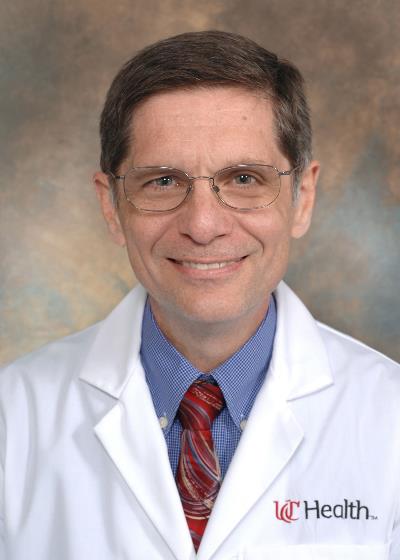By Richard A. Puff, Chief Communications Officer, University of Cincinnati College of Medicine
Charles Aring, MD, had a profound impact on the Cincinnati region and, through his founding of the University of Cincinnati College of Medicine’s Department of Neurology, a tremendous influence on the health of people throughout the world.
Cincinnati-born, Aring lived in a nearby home for orphans. In 1919, he began working as a 15-year-old office boy at the College of Medicine and went on to receive his medical degree from the college 10 years later. Aring quickly became an internationally known neurologist and returned to UC in 1947 as the founding chair of the Department of Neurology after having founded the neurology department at University of California at San Francisco.
Aring and much more, including how modern neurology and the Beatles are related, will be discussed Tuesday, May 7 when Joseph Broderick, MD, Class of 1982, presents the 2024 Cecil Striker Lecture “Cincinnati Neurology: From Astute Human Observations to Life-changing Therapies.” The lecture begins at 5 p.m. in the Kresge Auditorium and also will be streamed online. Register to attend the free presentation.

“Charlie Aring also was a prolific author who wrote about many things besides neurology: urban crisis, future of man, abortion, marriage, child-rearing, the role of a liberal education, end of life and on becoming an authority, among others. The breadth of his interest and knowledge was really amazing,” says Broderick, professor in the Department of Neurology and Rehabilitation Medicine.
Among the topics Broderick will discuss will include how much of the initial work leading to the first treatment for stroke with tPA (tissue plasminogen activator) was done in Cincinnati and how the first use of the drug in a stroke patient was here. “We also were among the first to use cell phones in medicine in the last 1980s. We may not have had tPA for stroke if we didn’t have cell phones,” Broderick notes.
“The University of Cincinnati has played a critical regional, national and global role in the observation, understanding and treatment of brain diseases and disorders of the neuromuscular system. Teamwork across specialties and across the world, a patient-centered approach and community support and philanthropy has made this possible. And during this time, there has been revolution in treatment. In 1975, you could count the proven scientific therapies in neurology and psychiatry on about two hands; today there are several hundred,” Broderick says.
Another example of the impact of the Department of Neurology and Rehabilitation Medicine is that, since 2013, the department has been the national coordinating center for all clinical stroke trials within the National Institutes of Health StrokeNet and funded by the National Institute of Neurological Disorders and Diseases. The national network includes 27 regional coordinating centers, or hubs, and more than 200 associated hospitals enrolling patients into its clinical trials.
A founding member of the UC Stroke Team, Broderick served as chair of the Department of Neurology and Rehabilitation Medicine from 2000 until 2013. Since 2014, he has been the director of the UC Gardner Neuroscience Institute. An internationally known stroke expert, Broderick was integrally involved in the studies that led to the approval of tPA and thrombectomy for treating stroke in addition to numerous other landmark studies.
Following Broderick’s presentation, attendees will have an opportunity to ask questions and, about 6:30 p.m., can attend a reception and view an associated exhibit in the Stanley J. Lucas, MD, Board Room (E005HA) near Kresge Auditorium.
The 15th Striker Lecture is hosted by the Henry R. Winkler Center for the History of the Health Professions, part of UC Libraries. The lecture series is named after Cecil Striker, MD, Class of 1921, a longtime College of Medicine faculty member who was passionate about medical history and who served as the first president of the American Diabetes Association in 1940. Striker died in 1976.
